Five Star Hotels and Resorts: Luxury Redefined

Five-star hotels and resorts are the epitome of luxury, offering unparalleled experiences that cater to discerning travelers seeking the ultimate in comfort, service, and exclusivity. From opulent accommodations and world-class dining to personalized amenities and bespoke services, these establishments go above and beyond to create unforgettable memories for their guests.
These havens of indulgence are carefully crafted to provide a sanctuary from the ordinary, where every detail is meticulously curated to elevate the guest experience to new heights.
This exploration delves into the world of five-star hospitality, examining the defining characteristics that elevate these establishments to the pinnacle of luxury. We’ll uncover the intricate standards that govern their classification, the expectations of discerning guests, the challenges and opportunities faced by hotel management, and the global trends shaping the future of luxury travel.
Join us as we unravel the secrets behind these extraordinary destinations.
Defining Luxury
The term “five-star” is a globally recognized standard for luxury hotels and resorts. This designation signifies a commitment to exceptional quality, service, and amenities, setting these establishments apart from their lower-rated counterparts. While the specific criteria may vary slightly depending on the rating organization, there are fundamental elements that consistently define the five-star experience.
Five-Star Criteria and Standards
The classification of a hotel or resort as five-star is determined by a rigorous evaluation process conducted by independent organizations such as Forbes Travel Guide or AAA. These organizations assess various aspects of the establishment, including:
- Accommodation: Five-star hotels boast spacious, elegantly appointed rooms and suites, featuring premium bedding, high-quality furnishings, and advanced technology. They often offer personalized services like turndown service, in-room dining, and 24-hour room service.
- Amenities and Services: These establishments provide a comprehensive range of amenities designed to enhance guest comfort and convenience. This includes features like swimming pools, fitness centers, spas, business centers, and concierge services. Five-star hotels also prioritize guest privacy and security, often offering valet parking, 24-hour security, and private check-in areas.
- Food and Beverage: Five-star hotels are renowned for their exceptional dining experiences. They typically feature multiple restaurants offering diverse culinary options, from fine dining to casual eateries. They also often have bars and lounges with sophisticated ambiance and extensive beverage menus.
- Staff and Service: A hallmark of the five-star experience is the exceptional level of service provided by highly trained and attentive staff. From the moment guests arrive, they are treated with personalized attention and anticipate their needs. The staff demonstrates professionalism, courtesy, and a genuine commitment to exceeding guest expectations.
- Location and Atmosphere: Five-star hotels often occupy prime locations, offering stunning views and easy access to key attractions. They create a luxurious and inviting atmosphere through elegant décor, sophisticated design, and meticulous attention to detail. The overall ambiance should be serene, sophisticated, and conducive to relaxation and enjoyment.
Key Features and Services
Beyond the basic criteria, five-star hotels offer a variety of distinctive features and services that elevate the guest experience. These include:
- Exclusive Experiences: Five-star hotels often provide access to unique and personalized experiences, such as private tours, curated wine tastings, or access to exclusive events. These experiences are designed to create lasting memories and enhance the overall luxury journey.
- Luxury Amenities: Five-star establishments go above and beyond in providing luxurious amenities. This might include amenities like heated swimming pools, private cabanas, rooftop terraces, or state-of-the-art fitness centers equipped with the latest technology. The focus is on creating a truly indulgent and pampering experience.
- Personalized Service: Five-star hotels prioritize personalized service, anticipating guest needs and exceeding expectations. This could involve remembering guest preferences, providing customized room arrangements, or offering bespoke services like personal shopping or private dining experiences.
- High-End Technology: Five-star hotels often incorporate the latest technology to enhance guest comfort and convenience. This might include features like smart home technology, high-speed internet access, and in-room entertainment systems with extensive movie libraries and streaming options.
- Sustainable Practices: Many five-star hotels are increasingly committed to sustainable practices, incorporating eco-friendly features and initiatives. This could involve using renewable energy sources, reducing water consumption, and implementing waste management programs. These efforts demonstrate a commitment to responsible tourism and environmental stewardship.
The Five-Star Experience
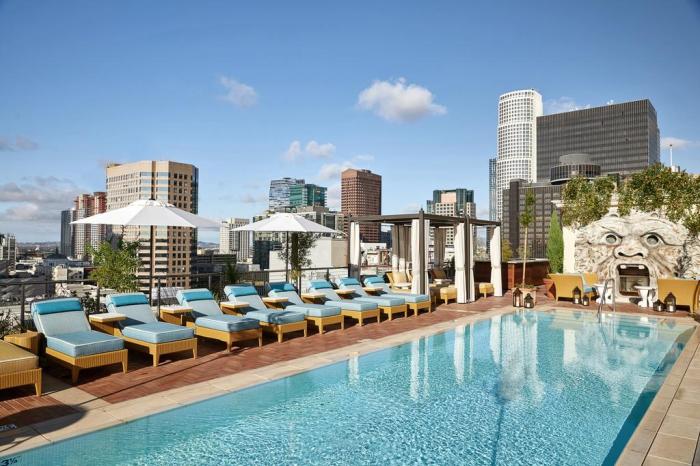
A five-star hotel or resort is the epitome of luxury and unparalleled service, catering to discerning travelers seeking an unforgettable experience. The allure of these establishments lies in their commitment to exceeding expectations, providing guests with an unparalleled level of comfort, personalized attention, and a curated collection of exclusive amenities.
Personalized Service
Guests at five-star hotels and resorts expect a personalized experience that anticipates their needs and caters to their preferences. From the moment they arrive, they are greeted with warmth and attentiveness, and their requests are handled with efficiency and discretion.
This personalized service extends to every aspect of their stay, from room arrangements and dining preferences to concierge services and spa treatments.
- Dedicated Concierge Services: Five-star establishments employ highly trained concierges who are well-versed in the local area and can assist guests with everything from booking reservations at exclusive restaurants to arranging private tours and excursions. These concierges act as personal assistants, ensuring that every detail of the guest’s stay is meticulously planned and executed.
- Personalized Room Amenities: Guests can expect luxurious accommodations that are tailored to their individual needs. From the choice of bedding and bath amenities to the selection of in-room entertainment options, five-star hotels and resorts go the extra mile to create a customized experience.For example, a guest who is celebrating a special occasion might find a bottle of champagne and a personalized greeting card awaiting them in their room.
- Exclusive Experiences: Five-star hotels and resorts often offer exclusive experiences that are not available to the general public. These might include private dining experiences, access to exclusive clubs or lounges, or behind-the-scenes tours of the hotel’s facilities. These unique offerings allow guests to create lasting memories and indulge in the ultimate luxury experience.
Exclusive Amenities
Beyond personalized service, five-star hotels and resorts are renowned for their lavish amenities and facilities. These amenities are designed to enhance the guest experience, providing them with unparalleled comfort, relaxation, and entertainment.
- Luxurious Accommodations: Five-star hotels and resorts boast spacious and elegantly appointed rooms and suites, featuring high-quality furnishings, premium bedding, and state-of-the-art technology. Some rooms may even have private balconies or terraces offering breathtaking views.
- World-Class Dining: Guests can indulge in culinary delights at multiple restaurants, each offering a unique dining experience. From Michelin-starred fine dining to casual al fresco dining, there is something to satisfy every palate. Many five-star hotels also feature bars and lounges where guests can enjoy handcrafted cocktails and live entertainment.
- Spa and Wellness Centers: Five-star hotels and resorts prioritize guest well-being, offering luxurious spa and wellness centers. These facilities may include a range of treatments, such as massages, facials, body wraps, and aromatherapy sessions. Guests can also enjoy saunas, steam rooms, and fitness centers equipped with state-of-the-art equipment.
Catering to Diverse Guest Needs, Five-star hotels and resorts
Five-star hotels and resorts understand that their guests have diverse needs and preferences. They strive to create a welcoming and inclusive environment that caters to every type of traveler, whether they are business executives, families, or couples seeking a romantic getaway.
- Family-Friendly Amenities: Five-star hotels and resorts often provide a range of family-friendly amenities, such as kids’ clubs, playgrounds, and babysitting services. These amenities allow families to enjoy their vacation while ensuring that children are well cared for.
- Accessibility Features: Five-star hotels and resorts prioritize accessibility for all guests, ensuring that their facilities are accessible to people with disabilities. This might include features such as ramps, elevators, and accessible rooms.
- Cultural Sensitivity: Five-star hotels and resorts are sensitive to the cultural diversity of their guests. They may offer multilingual staff, provide information in multiple languages, and cater to dietary restrictions and religious observances.
The Business of Luxury
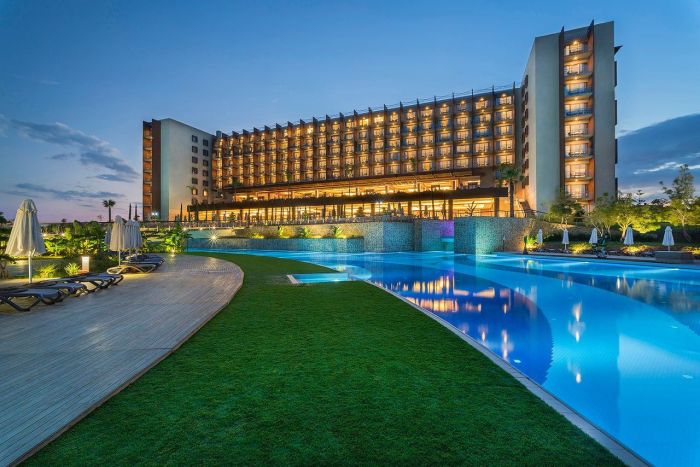
Managing a five-star hotel or resort is a complex endeavor that requires a delicate balance of operational excellence, guest satisfaction, and financial sustainability. These establishments cater to discerning travelers seeking unparalleled experiences and impeccable service, demanding a high level of commitment and expertise from their management teams.
Challenges and Opportunities
Managing a five-star hotel or resort presents a unique set of challenges and opportunities. The high expectations of guests, the need for constant innovation, and the competitive nature of the luxury hospitality market necessitate a proactive and strategic approach.
- Maintaining High standards: Delivering consistently exceptional service across all touchpoints is paramount. This involves meticulous attention to detail, rigorous training for staff, and a culture of continuous improvement. The need to adapt to evolving guest preferences and technological advancements adds another layer of complexity.
- Managing Costs: The high operating costs associated with luxury amenities, staffing, and maintenance require careful financial management. Balancing profitability with guest satisfaction is a delicate act, often requiring innovative cost-cutting strategies without compromising on quality.
- Attracting and Retaining Talent: The success of a five-star hotel hinges on the quality of its staff. Attracting and retaining highly skilled and motivated individuals is crucial, requiring competitive compensation packages, comprehensive training programs, and a positive work environment.
- Staying Ahead of the Curve: The luxury hospitality industry is constantly evolving, with new trends emerging regularly. Hotels need to be adaptable and innovative to remain competitive. This includes embracing new technologies, developing unique experiences, and responding to changing guest expectations.
- Building Brand Reputation: A strong brand reputation is essential for attracting a high-end clientele. Maintaining a consistent level of excellence and positive guest experiences is crucial for building and sustaining a strong brand identity.
Strategies for Maintaining High Standards
Five-star hotels employ various strategies to maintain high standards of service and guest satisfaction. These strategies are designed to create memorable experiences and foster loyalty among discerning clientele.
- Personalized Service: Understanding individual guest preferences and tailoring experiences accordingly is key. This may involve offering bespoke services, customized itineraries, and personalized amenities.
- Empowering Staff: Empowering staff to go the extra mile and address guest needs proactively is crucial. This involves providing extensive training, fostering a culture of service excellence, and recognizing and rewarding outstanding performance.
- Quality Control: Rigorous quality control measures are essential to ensure consistency and excellence across all aspects of the guest experience. This includes regular inspections, feedback mechanisms, and continuous improvement initiatives.
- Technology Integration: Technology plays a significant role in enhancing the guest experience. Hotels leverage technology for seamless check-in and check-out processes, personalized recommendations, and on-demand services.
- Partnerships and Collaborations: Collaborating with local businesses and attractions can enhance the guest experience and offer unique opportunities. This may involve partnering with luxury retailers, art galleries, or exclusive events.
Financial Aspects of Luxury Hospitality
Operating a luxury hospitality business involves significant financial considerations. Understanding the key revenue streams, cost structures, and profitability metrics is essential for success.
- Revenue Streams: Revenue in the luxury hospitality sector comes from various sources, including room rates, food and beverage services, spa treatments, and other amenities.
- Cost Structures: Operating costs are significant in the luxury hospitality industry, including staffing, maintenance, utilities, and marketing. Managing these costs efficiently is crucial for profitability.
- Profitability Metrics: Key profitability metrics include revenue per available room (RevPAR), average daily rate (ADR), and occupancy rates. Monitoring these metrics allows hotels to assess performance and identify areas for improvement.
- Investment and Growth: Luxury hotels often require significant capital investment for renovations, expansions, and technology upgrades. Managing these investments strategically is crucial for long-term growth and sustainability.
The Five-Star LandscapeFive-Starar Hotels And Resorts
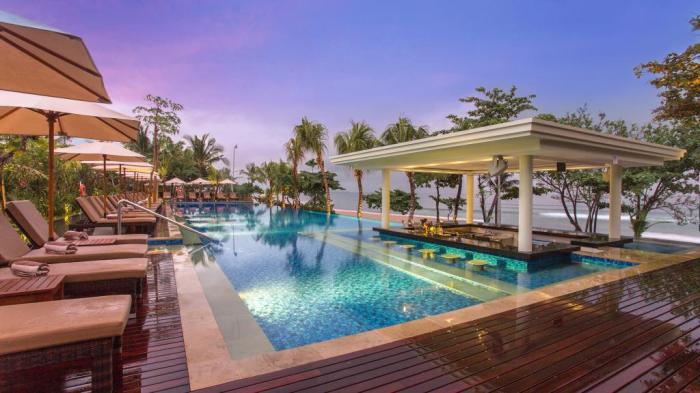
The global landscape of five-star hotels and resorts is a dynamic and constantly evolving industry, driven by shifting travel preferences, economic factors, and technological advancements. Understanding the key regions, emerging trends, and unique characteristics of luxury hospitality across the world is crucial for both industry professionals and discerning travelers.
Global Distribution of Five-Star Hotels and Resorts
The concentration of five-star hotels and resorts is not evenly distributed across the globe. Certain regions and destinations have established themselves as leading hubs for luxury travel, attracting a significant share of global investment and visitor traffic.
- Europe: Europe remains a dominant force in the luxury hospitality market, with iconic cities like Paris, London, Rome, and Milan boasting a rich history of luxury hotels. The region also offers a diverse range of destinations, from the picturesque countryside of Tuscany to the vibrant nightlife of Ibiza.
- Asia-Pacific: The Asia-Pacific region has witnessed explosive growth in luxury travel in recent years, driven by rising affluence and a growing demand for unique experiences. Destinations like Singapore, Hong Kong, Tokyo, and Dubai have become synonymous with luxury, offering world-class hotels, high-end shopping, and exceptional dining.
- North America: North America is home to a significant number of five-star hotels and resorts, particularly in major cities like New York, Los Angeles, and Miami. The region also boasts a wide range of natural attractions, from the beaches of Florida to the mountains of Colorado, attracting a diverse range of luxury travelers.
- The Caribbean: The Caribbean islands are renowned for their idyllic beaches, crystal-clear waters, and luxurious resorts. Destinations like the Bahamas, Barbados, and St. Lucia offer a tranquil escape for discerning travelers seeking a tropical paradise.
- South America: South America is experiencing a surge in luxury travel, with destinations like Buenos Aires, Rio de Janeiro, and Machu Picchu attracting a growing number of visitors.The region’s unique culture, vibrant nightlife, and breathtaking natural landscapes make it a compelling choice for luxury travelers.
Emerging Trends in Luxury Hospitality
The luxury hospitality industry is constantly evolving, responding to the changing needs and preferences of discerning travelers. Several key trends are shaping the future of five-star hotels and resorts.
- Experiential Travel: Luxury travelers are increasingly seeking immersive experiences that go beyond traditional hotel stays. This trend is driving the emergence of unique concepts, such as private island resorts, glamping destinations, and luxury wellness retreats.
- Sustainability and Wellness: Sustainability and wellness are becoming increasingly important considerations for luxury travelers.Five-star hotels and resorts are incorporating sustainable practices, such as energy efficiency, waste reduction, and locally sourced food, into their operations.
- Personalized Service: Luxury travelers expect personalized service that anticipates their needs and preferences. This is driving the adoption of technology, such as AI-powered chatbots and personalized concierge services, to enhance the guest experience.
- Tech Integration: Technology is playing an increasingly important role in the luxury hospitality industry. From contactless check-in and room controls to virtual reality tours and AI-powered concierge services, hotels are leveraging technology to enhance the guest experience.
- Rise of Boutique Hotels: Boutique hotels are gaining popularity among luxury travelers seeking a more intimate and personalized experience.These smaller hotels often offer unique designs, curated amenities, and a focus on exceptional service.
Characteristics of Five-Star Hotels and Resorts Around the World
While five-star hotels and resorts share certain common characteristics, such as exceptional service, luxurious amenities, and impeccable standards, there are also significant variations based on regional culture, local influences, and target market.
- Europe: European five-star hotels are often characterized by their historic charm, elegant design, and impeccable service. They may feature grand ballrooms, opulent dining rooms, and a focus on traditional European cuisine.
- Asia-Pacific: Five-star hotels and resorts in Asia-Pacific often feature modern design, cutting-edge technology, and a focus on personalized service.They may offer unique amenities like butler service, private pools, and access to exclusive experiences.
- North America: North American five-star hotels and resorts are known for their spacious accommodations, modern amenities, and a focus on comfort and convenience. They may offer a range of dining options, from casual cafes to fine-dining restaurants, as well as access to fitness centers and spas.
- The Caribbean: Caribbean five-star resorts often feature a tropical ambiance, with white-sand beaches, crystal-clear waters, and lush gardens. They may offer a range of water sports, spa treatments, and dining experiences showcasing local cuisine.
- South America: South American five-star hotels and resorts often feature a blend of modern and traditional design, reflecting the region’s vibrant culture and history.They may offer unique experiences, such as tango lessons, wine tastings, and excursions to local attractions.
The Future of Luxury
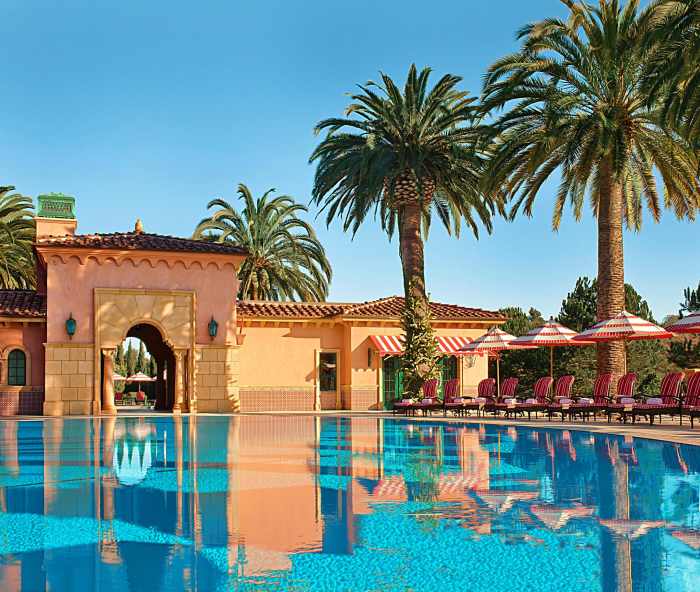
The future of luxury hospitality is intertwined with technological advancements and a growing emphasis on sustainability. As travelers become increasingly discerning, five-star establishments must embrace innovation to elevate guest experiences while minimizing their environmental impact.
Technology’s Role in Enhancing Guest Experiences
Technology is revolutionizing the way guests interact with luxury hotels and resorts. From personalized experiences to seamless service, technological innovations are transforming the five-star landscape.
- Artificial Intelligence (AI) and chatbots: AI-powered chatbots can provide guests with 24/7 personalized assistance, answering questions, making reservations, and providing recommendations. This technology can enhance guest satisfaction by offering immediate and tailored support. For example, the Mandarin Oriental in New York City uses AI-powered chatbots to answer guest inquiries and provide recommendations for dining and activities.
- Smart Room Technology: Smart rooms offer guests greater control over their environment. Features like voice-activated lighting, temperature control, and entertainment systems provide an enhanced level of comfort and convenience. The Ritz-Carlton in Fort Lauderdale, Florida, boasts smart rooms with voice-activated lighting, temperature control, and entertainment systems.
- Virtual and Augmented Reality (VR/AR): VR and AR technologies can create immersive experiences for guests. Hotels can utilize these technologies to offer virtual tours of their facilities, showcase nearby attractions, or provide interactive entertainment options. For example, the W Hotel in Barcelona utilizes VR to offer virtual tours of its rooms and suites.
- Mobile Apps: Mobile apps are becoming essential for enhancing guest experiences. These apps allow guests to manage their reservations, access hotel services, order room service, and receive personalized recommendations. The Four Seasons Hotel in London offers a mobile app that allows guests to manage their reservations, order room service, and access hotel services.
Sustainability in Luxury Hospitality
Sustainability is no longer a niche concept but a crucial aspect of luxury hospitality. As travelers become more environmentally conscious, five-star establishments are embracing eco-conscious practices to minimize their environmental footprint and enhance their brand image.
- Energy Efficiency: Implementing energy-efficient technologies, such as LED lighting, smart thermostats, and solar panels, can significantly reduce energy consumption and operational costs. For example, the Park Hyatt Tokyo utilizes solar panels to generate renewable energy.
- Water Conservation: Luxury hotels are adopting water-saving measures, including low-flow fixtures, rainwater harvesting systems, and water-efficient landscaping. The Peninsula Hotel in Hong Kong employs rainwater harvesting systems to reduce its reliance on potable water.
- Waste Reduction and Recycling: Implementing comprehensive waste management programs, including composting and recycling initiatives, is essential for minimizing environmental impact. The Ritz-Carlton in Chicago has implemented a robust recycling program, diverting waste from landfills.
- Sustainable Sourcing: Luxury hotels are increasingly sourcing locally produced and sustainably grown food and beverages. This practice supports local economies and reduces the environmental impact of transportation. The Mandarin Oriental in Bangkok sources locally grown ingredients for its restaurants.
Hypothetical Five-Star Hotel Incorporating Innovation and Sustainability
Imagine a five-star hotel nestled amidst a lush tropical rainforest, designed with a focus on both innovation and sustainability.
- AI-Powered Concierge: Guests would be greeted by an AI-powered concierge that anticipates their needs and provides personalized recommendations based on their preferences and travel history.
- Smart Rooms with Biometric Security: Each room would be equipped with smart technology, including voice-activated lighting, temperature control, and entertainment systems. Biometric security systems would provide a seamless and secure entry experience.
- Sustainable Design and Construction: The hotel would be built using sustainable materials and energy-efficient technologies, minimizing its environmental impact.
- On-Site Organic Garden and Farm-to-Table Dining: An on-site organic garden would provide fresh produce for the hotel’s restaurants, promoting sustainable agriculture and local sourcing.
- Immersive VR ExpeExperience: Guests could explore the surrounding rainforest through immersive VR experiences, learning about the local flora and fauna.
- Zero-Waste Initiatives: The hotel would implement comprehensive waste management programs, including composting, recycling, and reusable packaging, to minimize its waste footprint.
End of Discussion
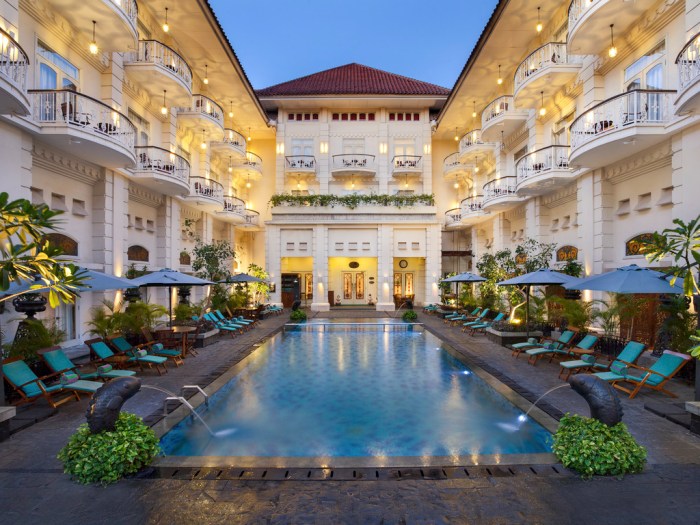
The world of five-star hotels and resorts is a captivating realm where luxury and service converge to create extraordinary experiences. These establishments are not simply places to stay; they are destinations in themselves, offering a glimpse into a world of refined elegance and personalized attention.
As technology continues to shape the hospitality landscape, five-star hotels and resorts are embracing innovation to enhance the guest experience while remaining committed to sustainability and responsible practices. The future of luxury travel promises to be even more immersive and personalized, with an unwavering focus on creating unforgettable memories for every guest.
Comments are closed.